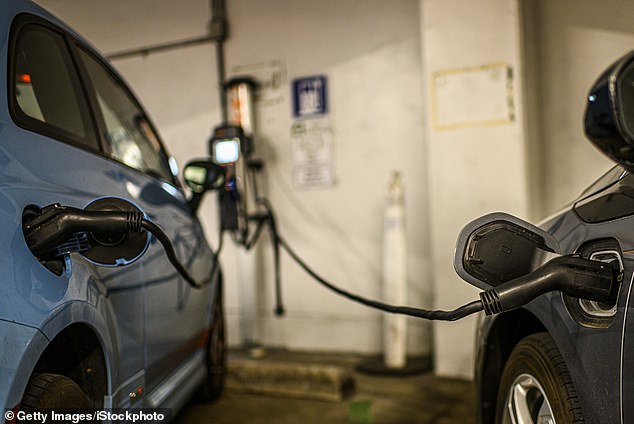An apartment dweller desperately wants to buy an electric vehicle, but faces a seemingly insurmountable obstacle common to many people in his or her living situation.
Robert Till, who lives in a cluster of strata-managed Brisbane units, has nowhere to charge an electric vehicle in the building and even after offering to pay to install a charger in the underground car park, he was turned down by the company.
The 70-year-old retiree said what he needs is a 10-amp, 240-volt outlet installed in the space of his car, but the resort’s corporate entity denied the request even though he offered to pay for it, a dilemma that potentially could face millions. of Australians living in similar situations.
Brisbane apartment dweller Robert Till is desperate to buy an electric vehicle but is blocked by his apartment’s strata management.
“I don’t agree that the body corporate should pay any of this,” Mr. Till said. yahoo news.
‘I just want them to get out of the way and let the people who want it pay for it.
“Just putting in a charger on my own volition would cost me about $5,000, and that includes a meter.”
Till has been at war with his complex’s corporate entity for three years over this issue.
The body corporate initially told him the building, which is 21 years old, could not be rewired to supply Type 2 charging, which uses seven pins and is faster than the five-pin Type 1 charging points.
Till said he is only asking for a Type 1 load that can accommodate 7 to 11 kilowatts from a standard 240-volt line.
He says he sought an expert assessment that confirmed this and that with few EV owners in the complex, it will not overload the building’s electrical infrastructure.
“If everyone turns on the kettle at the same time, it will be equivalent to everyone trying to charge their car and a low number of kilowatt-hours,” he said.

Some strata-run residential buildings have blocked the installation of electric vehicle charging stations
Till noted that under current law, a legal entity cannot stop someone from having a pet, even one the size of a house, but in the space of the car that is considered common property it can stop the charger.
Till said he wanted Queensland to take away companies’ rights to block charging plugs.
“If they want everyone to go electric, then they have to take that approval process out of the corporate entity and go back to state legislation,” he said.
Until that happens, Mr Till will be stuck with his 2011 Holden Calais.
The head of a national lobby group for strata apartment owners, Owner’s Corporation Network chairman Fred Tuckwell, is also pushing for a change to the law on electric vehicle charging.
He has written to the state and federal governments calling for legislation to ensure Australia’s 2.5 million strata owners have the right to charge their vehicles in buildings.
“I think the Victorian government is seriously considering it, and it’s certainly on the agenda of the New South Wales government, if they’re going to do something and when, I don’t know,” he said.
Recently, Tuckwell also pushed for laws to ban e-bike charging in apartments following a series of fires.
Tuckwell said his organization supported the adoption of electric bicycles and scooters as a means of low-CO2 transport, but wanted to ensure they were stored and charged safely.
“Don’t buy cheap rubbish, don’t heat it and don’t put it in the fire escape path,” he told ABC in January.
Fire crews in Victoria have said they deal with an average of three or four fires each week caused by lithium batteries exploding while recharging.
A report by the federal watchdog, the Australian Competition and Consumer Commission, published last year. Batteries in electric bicycles and scooters were found to be much more likely to cause fires than electric cars and trucks.
This was due to the low quality of cheap means of transport, which could be “particularly catastrophic” due to the volatile liquid in the batteries.

